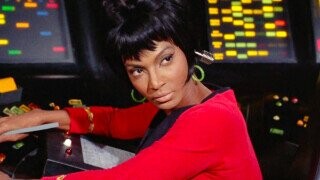Nichelle Nichols Nearly Quit ‘Star Trek’ (But Didn’t Thanks To Martin Luther King Jr.)

Sadly, this week the great Nichelle Nichols passed away at the age of 89. Of course, Nichols is best remembered for portraying Nyota Uhura, communications officer for the Enterprise, and occasional fan-dancer –
As one of the first major Black TV stars, Nichols has rightly been memorialized as a “trailblazer,” and her importance to Star Trek, and pop culture as a whole, really can’t be overstated. One of the best examples of this is Nichols’ now-famous story about the time she nearly quit Star Trek …
As she recounted in her memoir, Beyond Uhura, Nichols informed Gene Roddenberry that she wanted to leave the show after its first season, telling the Star Trek creator: “I’ve put up with the cuts and the racism, but I just can’t do it anymore.”
Don't Miss
After Roddenberry convinced her to take the weekend to think it over, she attended an NAACP fundraiser the following evening, where she was told that a “big fan” wanted to meet her. Understandably assuming it would be some random nerd, she was shocked to discover that the fan was, in fact, Martin Luther King Jr., who told her: “Ms. Nichols, I am your greatest fan. I am that Trekkie.”
At first Nichols was “speechless.” When she confessed to Dr. King that she was planning on leaving the show, he urged her to reconsider, saying: “You must not leave. You have opened a door that must not be allowed to close,” adding that she “created a character of dignity and grace and beauty and intelligence” that is “a role model for little Black children” and a “role model for everyone.”
While Nichols still worried that “Uhura’s full potential had not been realized, and, sadly, probably wouldn’t be” she began to see the character as a “symbol of hope” and reconsidered her premature exit from the show. And while Uhura may not have gotten the same narrative attention as other Trek characters, Nichols used the role as a springboard for other initiatives, such as the time she partnered with NASA, appearing in a promotional film “meant to inspire women and people of color to apply to become astronauts.”
Which was a success; Sally Ride, the first American woman in space, told Nichols that her efforts were how she “heard about the space program.” And, upon reflection, Nichelle Nichols deserved a special award for the time she hosted An Evening at the Improv and had to put up with this:

A&E
You (yes, you) should follow JM on Twitter!
Thumbnail: Paramount